
How to Learn a Language Before You Travel
Vrai Paris Cafe, Paris, France. Photo by Alex Harmuth
This post may contain affiliate links which means Trip Scholars may make a small commission (at no extra cost to you) if you make a purchase. As an Amazon Associate I earn from qualifying purchases. Read more here. Thanks for helping us keep the lights on!
For as long as I can remember, I have been an enthusiastic language learner. I studied French and Spanish at school and went on to study French at university, with a year of beginner’s Chinese. As an adult, I spent three years living in Tokyo, and I have since taken two Japanese exams. I continue to study Japanese regularly.
Despite all this experience, I still have to focus on finding the best ways to learn, and I’m still working towards achieving native-level fluency in a second language. That’s the thing about learning a language; it can be a long journey. Your goal doesn’t have to be fluency, however, and achieving even basic language skills can be an incredibly valuable experience.
When I first started learning languages, I wasn’t necessarily doing it with travel in mind, but there’s no doubt that my language skills have enhanced my travel experiences. I felt more comfortable and confident when travelling in France, Spain, and Japan because I was able to understand some of what was going on around me, and I didn’t have to ask people to speak English. I was also able to connect with locals more and have experiences away from the usual tourist trails.
These aren’t the only reasons that it’s beneficial to learn a language before you travel. Read on to find out what I think the values of learning a language are, and what methods I’ve found to be most effective.
Table of Contents
Why should I learn another language before I travel?
You will have richer travel experiences

Learning a language has given me some wonderful opportunities. As part of my French degree, I spent 7 months living and working in France. When I lived in Tokyo, I was eventually able to make friends with locals who didn’t speak English; friendships that wouldn’t exist if I hadn’t improved my Japanese.
My experiences of travelling in France and Japan were greatly improved thanks to my language skills: locals warmed to me as I was making an effort to speak their language, I was able to eat in non-touristy restaurants that didn’t have English menus, and I had more opportunities to explore the cultures at a deeper level.
Native English speakers often have a reputation for relying on English when travelling and not learning much of the local language. This is not a reputation to be proud of and it is one we should try to change. It’s important not to expect praise for learning the local language though, especially as so many people who work in tourism around the world have to learn our language to do their jobs. The least we can do is to learn a few words and phrases so that we can greet people and be polite.
You will grow in confidence

Once you’ve navigated paying taxes, renting an apartment, or discussing your allergies with a restaurant chef in another language, many situations no longer feel daunting. After all, these are things that can be tough to deal with in your native tongue, let alone a language that you don’t speak fluently!
Learning a language often pushes you outside of your comfort zone, especially when you start using that language in everyday situations. I can’t say that I haven’t found this tiring at times, but I’m proud of, and grateful for, the confidence that persevering through these challenges has given me.
You will improve your communication skills
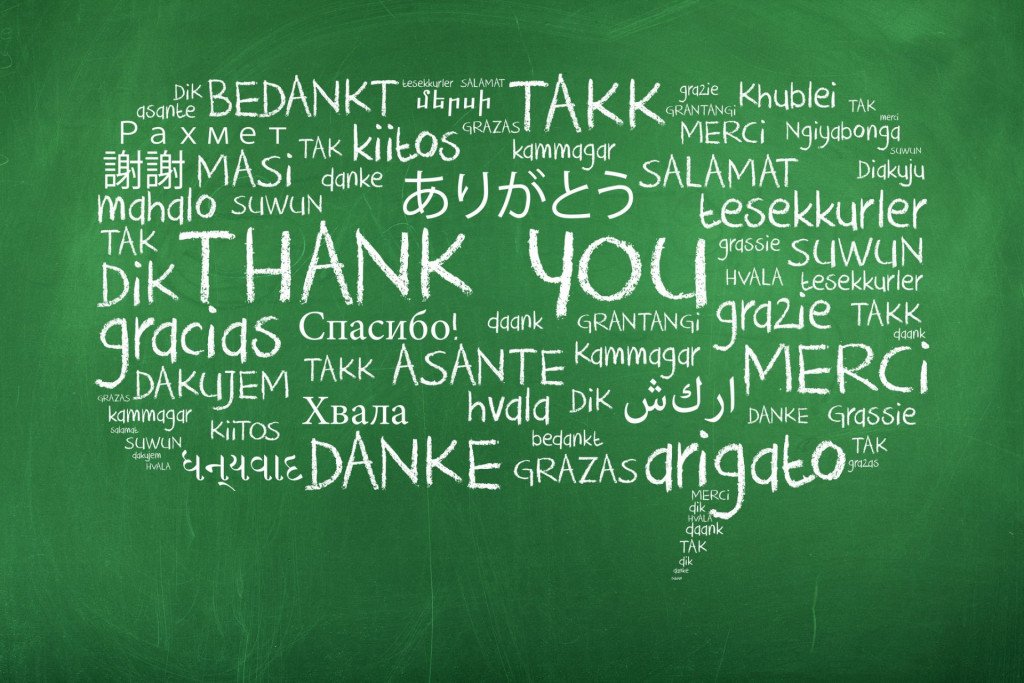
Language is incredibly nuanced and the more you study a language, the more you learn to read between the lines in that language. You learn that the same word used in different contexts can mean completely different things, and that a slight change in the formality of your language is the difference between being respectful and offending someone.
Speaking another language also gives you more access to another culture. You may learn that certain gestures used in your culture are considered rude in another, or that you’ve been misinterpreting body language because of cultural differences.
All of these experiences can make you a better communicator in general, and you can use this newfound skill in other areas of your life, such as in relationships and at work.
Hopefully, I’ve convinced you of the value in learning a language, but one question remains; what is the best way to go about it?
How do I learn another language?
Use multiple methods
In order to learn a language, you need to master several skills. You also need to find ways to keep yourself motivated. For these two reasons, I think the best way to learn a language is to use different methods that challenge you in different ways.
You could sit at home and memorise a lot of vocabulary, but chances are you won’t be able to recognise these words in different accents if you don’t work on your listening skills, and you won’t be able to put these words into coherent sentences if you don’t study grammar. Different methods can help with building different skills, and it is this combined approach that will help you achieve your language-learning goals.
Here are my favourite methods for learning a language.
Apps
Apps like Duolingo are a great place to start as they encourage you to incorporate short bursts of language learning into your daily routine. They also appeal to those with a competitive nature, with user rankings and rewards for practising every day. Many language learning apps have free versions available, so there’s no need to make a big financial commitment. You can find useful language learning apps in the Tripscholars Resource Library.
While apps can be great at helping you master some useful vocabulary and simple sentence structure, I do think there’s a limit to how much progress you can make with them. Speaking practice is often limited to repeating sentences and it’s hard for apps to simulate real-world situations.
Films and TV shows
There are several approaches you can take to get the most out of what is one of the most enjoyable ways to learn a language. When you’re just starting, watching films and TV shows in your target language with subtitles is a great way to get used to pronunciation and intonation. You might also be able to recognise some basic vocabulary, such as greetings or words used for asking questions.
As you progress, keep the subtitles on, but use a notepad to jot down any useful words or phrases you hear and then check them in Google translate (better for words than phrases), a dictionary, or with a language exchange partner.
Once you are fairly competent in the language, you can test yourself by watching films and TV shows without the subtitles.
Lessons
There’s no doubt that getting instant feedback from a trained teacher is invaluable when learning a language. If it wasn’t for the engaging French lessons I had in sixth form (11th and 12th grade of high school), I wouldn’t have gone on to study French at university, and the most progress I ever made in Japanese was when I started weekly lessons with a private tutor.
In-person group classes can be a lot of fun and give you the added bonus of meeting new people, but depending on where you live, it can be hard to find group classes for all languages and levels. This is where one-on-one online lessons come in.
Italki is a platform of over 10,000 teachers who can help you with everything from casual conversation practice to test preparation and business-focussed lessons. It is based out of Hong Kong, so you may need approve translating the site when you arrive.
Another fantastic option is Preply. You can find tutors with a broad range of backgrounds and rates who will help you improve your language skills before your trip. Many of the tutors are also professional teachers and there are ample reviews to help you find the best match.
Unlike apps, one-to-one lessons can be tailor-made to you. You can work with your teacher to make sure your lessons are focussed on what you most want or need to learn, making the best use of your time and money. Online lessons are also very competitively priced and most platforms offer even cheaper trial lessons to help you find your perfect teacher.
Language exchanges
The concept of a language exchange is to practice the language you’re learning with a native (or fluent) speaker, who in turn practices your native language with you. I discovered language exchanges through mylanguageexchange.com a few years ago, and they really helped improve my spoken Japanese. Speaking is often the most daunting part of learning a language, so language exchanges tend to make you feel comfortable as you are both practising.
Language exchanges also allow you to get the same instant feedback as lessons, but they are more relaxed and allow you to learn everyday conversation rather than more formal “textbook” language.
Finding a language exchange partner can be a little like dating, in that it can take a while to find someone that you get along with and find it easy to communicate with. I truly believe it’s worth the effort though, and I now have lifelong friends that started out as language exchange partners.
I find that using different language-learning methods keeps me interested and motivated. When I’m short on time or don’t feel that I have the capacity for an intense study session, I watch an episode of a TV show or do ten minutes of learning on an app. When time isn’t an issue, or I’m getting ready for a test, I take notes while watching a film and test myself on the vocabulary later or I schedule one-on-one lessons with my tutor.
Push yourself to focus on areas that you’re less confident in
I tend to be good at pronunciation and remembering new vocabulary, but I struggle with grammar and sentence structure. It can be tempting to only focus on the areas that I’m best at and enjoy the most, but if I do that, I will never be able to express myself the way I want to in another language.
Every now and again, push yourself to focus on what you find the hardest or least enjoyable. If you can find a fun way to do this (try using the methods I mentioned above!), it will soon stop feeling like hard work.
Don’t put too much pressure on yourself
Learning a language can be fun, but it is also incredibly challenging. It seems that some people have a natural aptitude for languages, but for the rest of us, it takes hard work and consistency.
If your goal is to be fluent, it can be a years-long or even lifelong endeavour, so don’t put too much pressure on yourself to learn at a fast pace. Succumbing to the pressure can knock your confidence and motivation, two things that are vital to language learning success.
Learning a language is challenging, but it’s worth the effort
There you have it, my top tips for learning a language and why I think it’s so important. Visit the Tripscholars Resource Library to find more language learning resources. Have you ever tried to learn a language before you travelled? What methods did you find most helpful? If you’ve never tried to learn a language, have I convinced you to give it a go?
This guest post was contributed by Shannon at Desserthighway
We love to learn from our guest writers and appreciate their expertise! Visit her website by clicking on the image or name below.
desserthighway
DO YOU WISH YOU COULD TRAVEL MORE?
Let's Connect
I’d like to send you a free gift!
The Curious Traveler’s 5 Step Guide to More Meaningful Trips

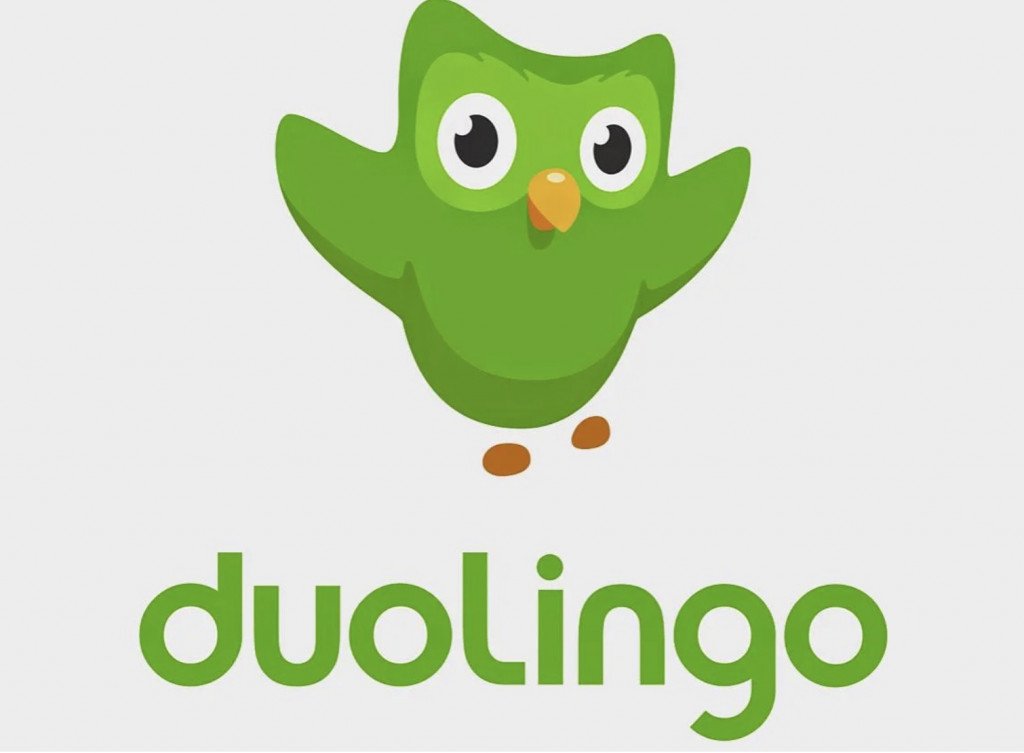
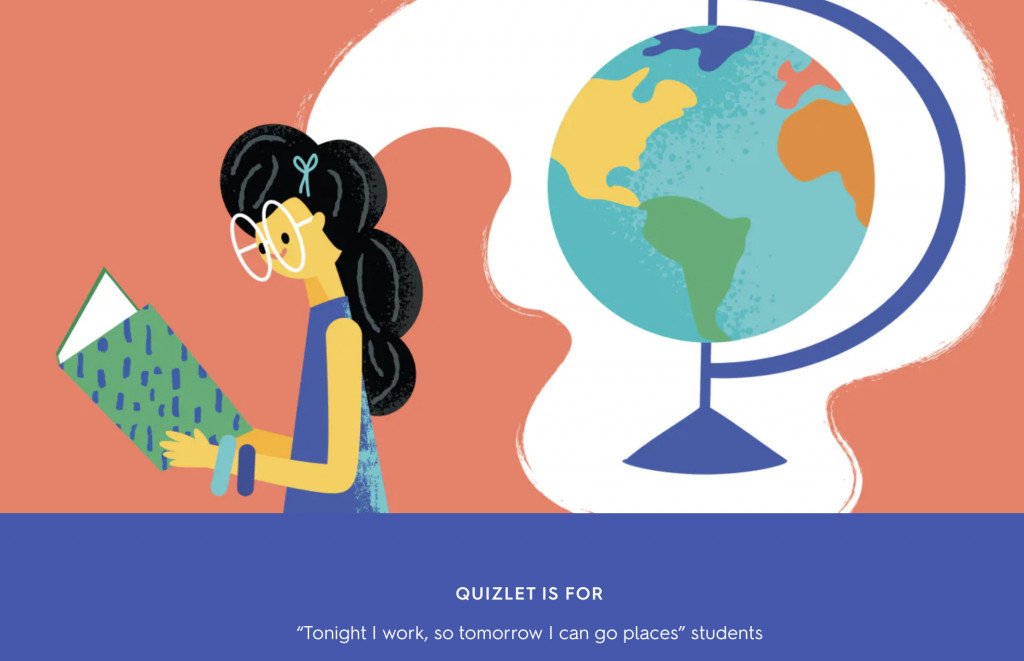

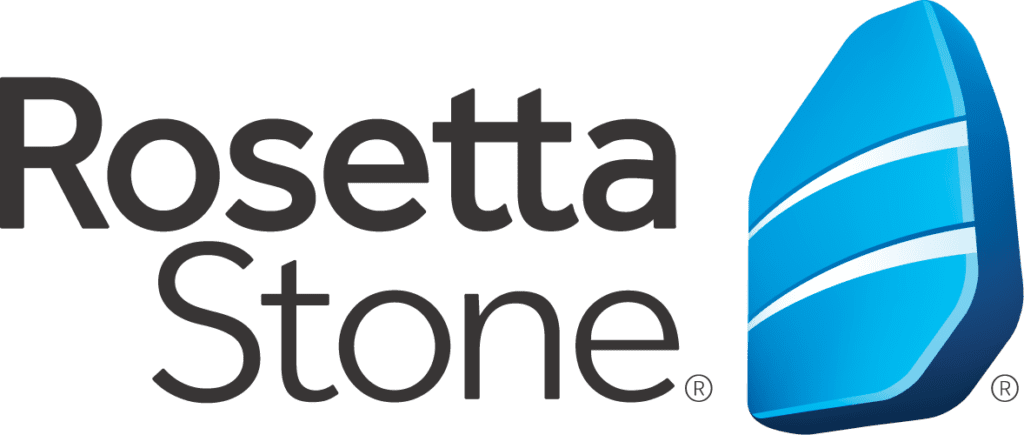

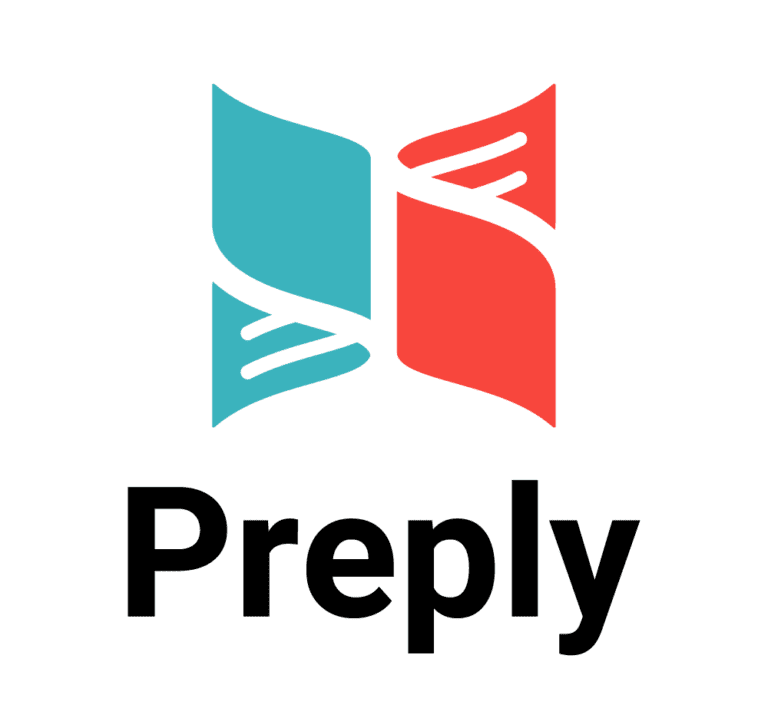

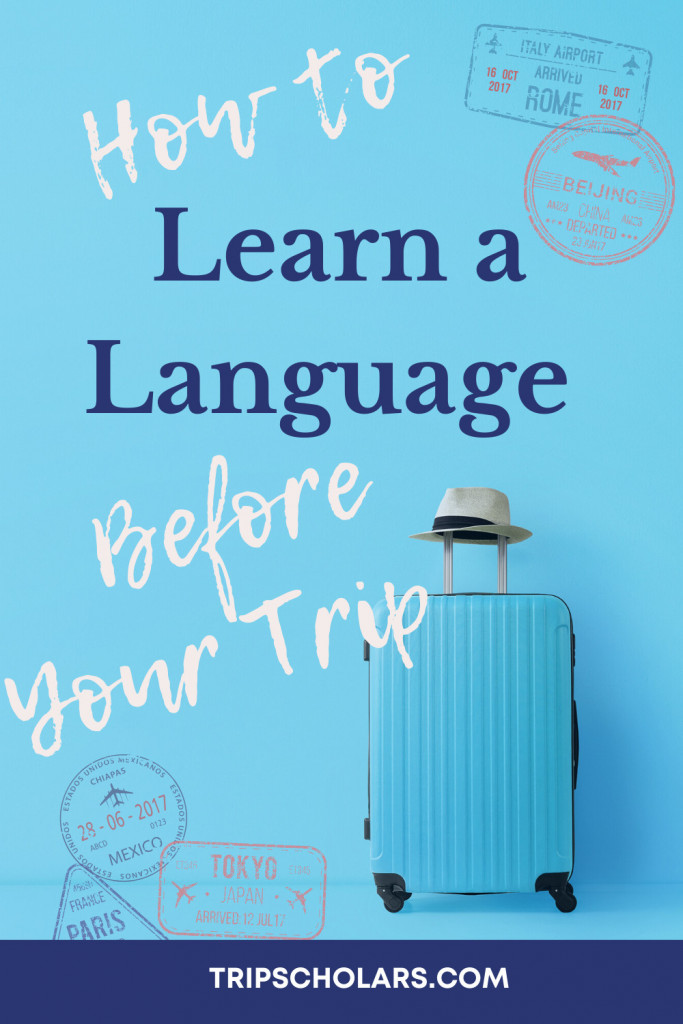
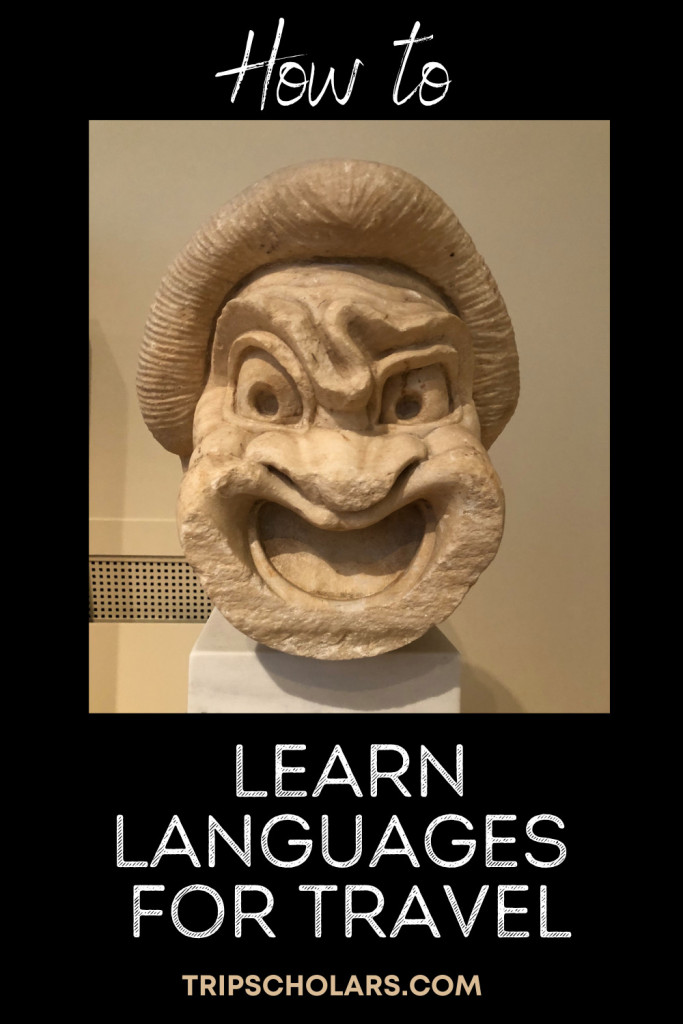

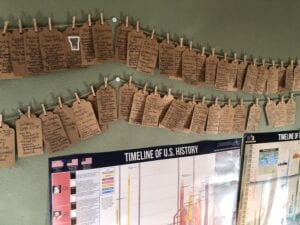






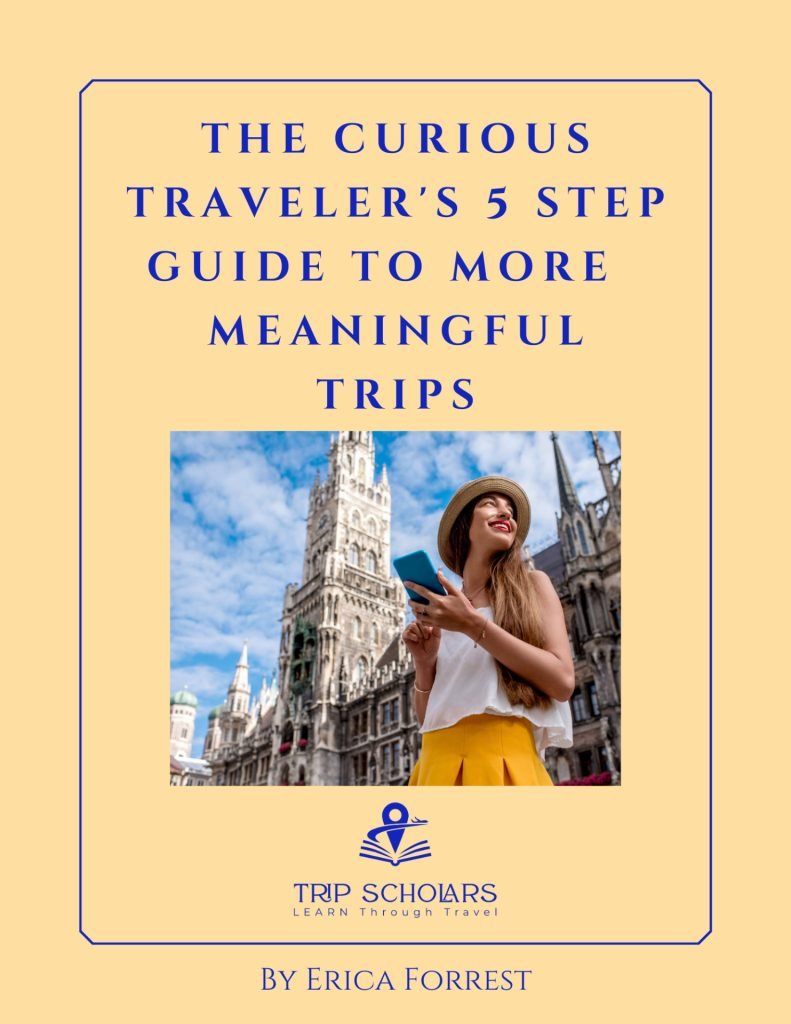
8 thoughts on “How to Learn a Language Before Travel”
I teach English as a second language, but have always been useless at learning languages myself. I’ll have to make more effort. Thanks for the tips
That is great you are an ESL teacher, it has the potential to significantly impact people’s lives! I’m a teacher too and learning languages is such a helpful and humbling experience. I think it is very useful for putting myself in the position of my students. Good luck, it is a lifelong pursuit!
This is such a great resource. Even though we are not traveling to a foreign country anytime soon, my son is in a dual language elementary school program. These resources will be helpful for both of us! Thank you, thank you, thank you!
How wonderful that he is in a dual language program, being bilingual will enhance his life in profound ways! I’m glad you found these suggestions helpful. Shannon, the author has wealth of good ideas!
Yes yes yeeees! I totally agree with this!
I always thought I was rubbish at language learning before I started to learn Japanese. Like you, it opened so many doors for me and made living in Japan sooo much more fun. I personally found classes or one on one language lessons best for improving after I was fluent, but duolingo and apps are fantastic for getting started. 🙂
That is a great story Josy, I can only imagine how much knowing Japanese improved your life in Japan! We are so fortunate that there are many options these days for learning and your combo of apps at the beginning and lessons later on sounds like a great approach.
Thank you. Absolutely agree with “The least we can do is to learn a few words and phrases so that we can greet people and be polite.” Please, everyone, do it. It’s common courtesy. The methods you mentioned are all fine, just do it
Yes, I couldn’t agree with both of you more. It is always worth taking the time to be able to greet and thank people in their native language.